By Darin Diehl
Special to the Financial Independence Hub
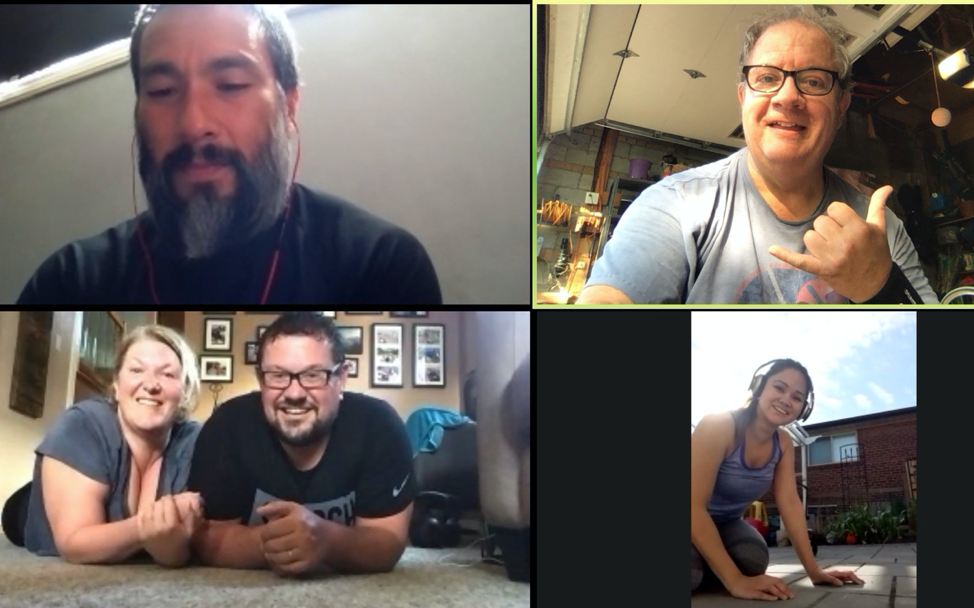
I was crushing it on the morning of May 17, 2020. The kettle bells somehow felt a little lighter that Sunday: even as my trainer, who I have worked with for a decade, was driving us a little harder that morning. Three times a week my classmates and I gathered online for this punishment: with most of us taking in a yoga stretch class up to three more times a week with the same trainer. It had all become part of the Covid-19 lockdown routine, along with all the bread and cookie baking.
But later that morning I developed some discomfort horizontally across my chest that I thought might just be muscle strain. And while this sensation abated by midday, I also started to feel nauseous, headachy and would later develop the chills. These symptoms led me to bed for the next few days. My wife and I wondered about Covid, but by Thursday of that week all the symptoms had gone. However, I was now feeling a new chest irritation – more centred in my chest versus across my chest as before.
My wife’s cousin, a nurse, had sent us a list of updated Covid-19 symptoms and encouraged us to call Ontario Telehealth and walk through the screening questions. I waited till Friday, May 22 to do that. The nurse asked me all the Covid questions but was most interested in me describing the different chest pains I felt that day and five days earlier. Then, in a decision that I believe may have saved my life, she told me she believed I had suffered a heart attack and was ordering an ambulance.
Maybe you are thinking, ‘Of course you had a heart attack you idiot.’ But, hey, I had never had one before and there was no chest clutching or left arm pain – any of the stuff you hear about. So, as my wife, my younger of two daughters and son waited with me for the ambulance we mused that at least I’d get checked out and undergo a Covid-19 test.
“Mr. Diehl, you’ve had a heart attack.”
I was taken to the Covid-19 emergency intake at Trillium Health Partners, Mississauga Hospital just a 10-minute drive from our home. I was swabbed and blood was drawn for a battery of tests. At one point in the afternoon a doctor came to see me and said I’d likely be sent home and asked to self-isolate until they called with my Covid-19 test results. But he first wanted to conduct a couple more blood tests for specific heart attack indicators. I was arranging pick up with my wife when he returned a little later and told me, “Mr. Diehl, you’ve had a heart attack.”
The words, spoken so manner of fact, left me stunned. I recovered from the initial shock and asked what would happen next. The answer was more tests, including chest scans. The next day a cardiologist came by and explained that I would be undergoing an angiogram in a few days so they could see what was happening inside my heart. And it seemed that indeed that was a heart attack I’d experienced on Sunday, May 17th and that as a result the sack around my heart had become irritated and inflamed by the following Thursday, when I started to feel the second chest discomfort.
Later that evening the cardiologist paid me another visit to mention that one of the scans indicated nodules on both of my lungs which would need to be investigated. That night it all caught up to me. Alone in an isolated room (my Covid test result was still pending), no visitors allowed, and news of a heart attack and “some other problem” in my lungs bouncing around in my head, I cried for some time in fear and shock. What the hell just happened? I had been exercising regularly, had never been under treatment for high cholesterol and I was not a smoker.
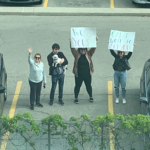
By Sunday morning I arrived on the cardiac floor. My Covid-19 test was negative (I’d have three more negative tests before leaving the hospital). My angiogram was scheduled for the following Tuesday. A respiratory doctor had come in to talk to me about the nodules on my lungs, explaining that they could be a number of things, some more worrisome than others. At this point no one had said the word cancer, yet there it was taking up residence inside my thoughts. But for now, we’d all focus on the heart.
My angiogram revealed I would need at least four bypasses as some of the plumbing feeding my heart had blockages ranging from 30 per cent to almost 100 pe rcent. I was told I could be scheduled for the procedure by the end of the week. In fact, on Thursday morning a nurse came into my room and shaved my chest, arms, thighs and nether regions to prep me for possible surgery that afternoon.
But there was a problem. I had developed a gastrointestinal issue which at first, they thought might be a reaction to some of the myriad medications I was on. But by noon I learned my surgery was canceled because, as a doctor explained to me, I had a parasite. Confusion and incredulity were the feelings of the moment as the he asked if I’d recently been to a farm or agricultural plantation. I mean, it’s 2020 and all, but this was just nuts. “Perhaps you should test me for Ebola,” I quipped. He chuckled and said my system would clear the parasite in a day or two, so no worries.
My surgery was rescheduled for Monday, June 1st. I was feeling good because I’d checked on the reputation of the surgeon and he was clearly an ace. In fact, to that point I had experienced an array of fantastic medical professionals – doctors, nurses and nurse practitioners, various technicians – all of them so well qualified and so compassionate.
Because of Covid-19 protocols, visitors were not allowed at the hospital. The only exception was that my wife was permitted to come pre and post-surgery for a brief time. So, the fact that the nurses especially took time to check in on how I was feeling and share a kind word or two really meant so much.
Quintuple bypass surgery and a cancer diagnosis
That Monday when I woke up from the surgery, I learned they did a quintuple bypass and my ace surgeon also removed the larger of the two lung nodules while he was in there fixing my heart. The following Saturday he shared an initial pathology report which unfortunately confirmed cancer – an adenocarcinoma non-small cell cancer, a non-smoker’s lung cancer. There was still the smaller nodule on my other lung, but he’d refer me to oncologists who would take over from there. The next day, 16 days after the Telehealth Ontario nurse had called the ambulance for me, I was released and happily headed home.
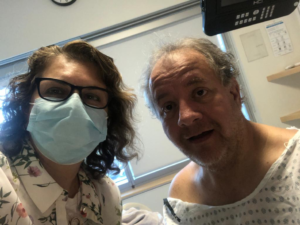
The next six weeks should have been focused only on recovering from the surgery. But understandably no one wanted to wait too long to start meeting with the oncologists – all three of them. At first it seemed either the radiation or surgical oncologist would lead my care with the need to deal with the remaining nodule. But a PET scan later revealed there was significant spread in the area where the first nodule had been removed, including lymph nodes. When this news was revealed to my wife and I on a phone call with the surgical oncologist it was by far the scariest day of this whole roller coaster ride. Put another way, we learned my cancer was not Stage 1 or 2, but most likely Stage 4. It was a real kick in the teeth.
For now, the surgical and radiation oncologists were out of the picture. The medical oncologist took centre stage. Over a couple of visits to the impressive Carlo Fidani Peel Regional Cancer Centre, he had me undergo some more scans and bloodwork. And he told us about a third-generation targeted therapy that was designed to treat my specific kind of lung cancer. Osimertinib, also known as Tagrisso, has only been available for a couple of years but results have been very encouraging, we were told. The challenge was its cost, about $11,000 CAD per month, or a whopping $132,000 per year. And it was not covered by OHIP.
At this point in the story it’s important to note that throughout the entire ordeal not once had any medical professional talked to me about anything but my actual care. I didn’t have to make choices about what care I could afford, and no estimate needed to be signed off on before any procedure would take place. Mind you we did pay a $45 fee for the ambulance, but I’m cool with that. The point is, for the most part, money worries did not enter the picture.
Unemployed at 60, with no medical benefits
Now, I had been laid off in late November of 2019 but had a settlement package in place that included ongoing salary and benefits up to the end of May. There are numerous implications about that timing, which I’ll get to in a moment. Over the winter and spring, my search for new employment was not without prospects but the onset of Covid-19 had created a rather crowded job market, and at 60 I was not exactly in the sweet spot of prime hiring age to begin with. Long story short, as of June 1st (the date of my surgery) I was unemployed and no longer had private medical benefits.
My medical oncologist talked to us about the Ontario Trillium program, which covers drug costs for the uninsured minus a means-tested deductible. We applied and were accepted but my annual deductible was still about $12,000, annually. Astra Zeneca, which manufactures Tagrisso, knocks off 20 percent. We could handle the remaining $10,000, but a former boss of mine organized a GoFundMe campaign and within a few days former colleagues from different parts of my career had helped reach the goal. The gesture left us feeling both a bit awkward but ultimately grateful.
As the summer winds down, I am walking as much as 10 kilometres per day. The formal heart rehab program in my region is still suspended because of Covid-19, but I’ve been seeing my cardiologist and going for occasional tests. On the cancer fight, I am taking the targeted therapy pill every day and will be monitored with monthly bloodwork and quarterly CT scans. Other forms of cancer treatment may yet be in my future.
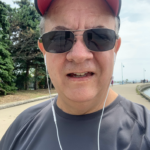
2020 has earned quite a reputation. In spite of my personal health challenges, the year has provided its share of highlights as well. In February, I celebrated my 60th with a big party in support of a favourite local charity I’ve supported for years. Then my wife and I flew to Hawaii to join some of my high school friends for a joint celebration of our six decades – a trip that was five years in the planning and completed before the pandemic was declared.
Even the medical mess I went through in the early part of the summer left me with plenty to celebrate. Had the Telehealth Ontario nurse not called that ambulance and I continued on with my life, the two ticking time bombs in my body may never have been discovered until it was much too late. I am in for a tough cancer fight, but better that it begins now than a year from now: and thank goodness there’s a treatment that’s been showing such promise.
None of us know how long we have with the ones we love, to do the things we love to do, and to lift up others where we can. I’m grateful for every day. I’m grateful for the sound financial planning decisions, aided by our advisor of three-plus decades, we committed to years earlier. I’m grateful for the healthcare system provided by the imperfect country in which we live and for so many magnificent healthcare professionals. I’m grateful for a lifetime of friendships, new and old. I’ve grateful for a big, boisterous, supportive family, including my 90-year-old mom (herself a quadruple bypass survivor), my three wonderful sisters, two sisters-in-laws and two brothers-in-law, my mother-in-law and oodles of nieces and nephews. I’m grateful for three loving adult children and my partner of 32 years who’ve all been forced to deal with all the stress and anxiety right alongside me.
Thank you 2020, for putting all that in focus for me.
Some lessons from my 2020 summer:
- Don’t diagnose yourself. I did and it could have cost me my life. See your doctor. Call Telehealth. If needed, go to the hospital.
- OHIP doesn’t cover everything. Understand what’s covered by your provincial health care plan and what other government programs can help pay for catastrophic medical costs.
- Consider health insurance beyond what’s provided by your employer. My wife and I decided in our 40s to add private long-term disability insurance to anything we got through employment. So glad we did so now.
- When you’ve got a chance for a trip or experience of a lifetime, take it. Eight months before my high school reunion trip to Hawaii was supposed to take place, I was wavering on whether or not we should spend the money. So glad we decided to go.
- Understand your work health benefits and the options available to you. I made the decision years ago to not only check the option for Critical Illness Insurance, but to pay a bit more for more coverage. As my heart attack diagnosis was May 22nd when my benefits were still in force, my claim for the heart attack was approved and that money will come in handy for various costs this year.
- Get engaged with your own care. Working with health experts is like working with financial experts – trusting them does not absolve you of your responsibility to better understand your problems and the potential solution.
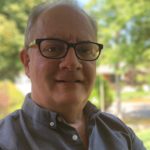 Darin Diehl is a content marketing thought leader who has helped some of Canada’s leading financial services companies connect with their clients and prospects with engaging, educational articles, videos and infographics. A journalist for many years, he later built and led content strategy, writing and social media teams at numerous financial entities.
Darin Diehl is a content marketing thought leader who has helped some of Canada’s leading financial services companies connect with their clients and prospects with engaging, educational articles, videos and infographics. A journalist for many years, he later built and led content strategy, writing and social media teams at numerous financial entities.

